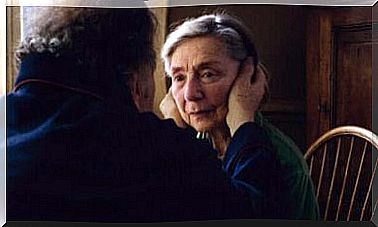Coping With Grief: Strategies And Their Consequences

Everyone has or will experience a loss at some point in their life. Whether it’s the death of a loved one, a breakup, a layoff, or a move, it’s always about losing something that was really important. The grief is present after any kind of loss. It’s a process of dealing with your emotions and realigning your life. Yet each of us has different strategies for coping with grief.
For some people, it is easy to accept their new reality and adjust to that situation. For others, however, it feels like their world is collapsing. Confusion, pain and anger torment them and rob them of all happiness.
The fact that everyone has a different strategy for coping with grief explains these differences. If you feel that your coping strategy is not working, there are a few steps you can take to change this process.

Strategies for Coping with Grief
Coping is defined as a series of cognitive and behavioral efforts. They are set in motion to deal with internal or external requirements and to react to them. A situation that overwhelms a person leads to stress. D his is the time at which the coping strategies come into play in order to adapt to these demands.
Grief is without a doubt a very overwhelming experience that leads us to resort to our coping mechanisms. However, as mentioned earlier, there are many different strategies for coping with grief.
Problem-oriented strategies for coping with grief
In this case , all of your resources will focus on the problem that needs to be solved. There are three problem-oriented coping strategies:
- Reflexive. You analyze and reflect on the situation and yourself and plan how you can move forward.
- Reactive. You are engaging in impulsive and uncontrolled activities driven by your distorted thoughts.
- Oppressive. In this case, you are denying what happened and avoiding facing reality.
Usually reflective strategies bring you closer to a solution. Reactive and suppressive strategies, on the other hand, will make it much harder for you to deal with your grief.
Using a coping strategy that focuses on problem solving will help you identify the stressful situation and assess its importance. In this way, you also analyze the causes and participate in behaviors that lead to change.
Emotional coping
This strategy is to focus your energy on the emotions that are causing the problem, not the problem itself. On the one hand, there is emotional processing, where you recognize and understand the emotions you are experiencing. On the other hand, there is an emotional expression that consists of releasing these feelings and sharing them with yourself or with others.
Emotional coping can also be broken down into the three categories above:
- Reflexive. Reflexive coping involves analyzing your feelings.
- Reactive. Reactive coping involves the impulsive and uncontrolled expression of your feelings.
- Oppressive. Finally, suppressive coping involves avoiding your feelings altogether.

The consequences of strategies for coping with grief
Both of the strategies that we mentioned in this article are ways to deal with losses. If you analyze them carefully, you can easily spot the ones that you resort to during times of stress. Each of these strategies has different consequences. They will determine how quickly you will deal with your grief and how effective the process is.
People who normally engage in reactive behaviors are more likely to experience an intricate grieving process. They are also more likely to show symptoms of anxiety and depression. Reactive strategies may initially be beneficial, as anger can make you feel strong. Over time, however, this emotion becomes an obstacle to facing your real grief.
On the other hand, those who choose to use emotional expression and reflective strategies will experience more growth and positive personal change after a loss. These strategies will help you:
- To find solutions
- To receive support from those around you and
- express your feelings appropriately.
The best way to deal with grief is to appropriately identify, express, and release your emotions. It is also helpful to maintain mental clarity and focus on problem solving. Conversely, if you deny the problem, avoid it, or react impulsively, it will only make your suffering worse.








